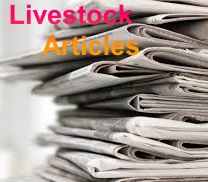Agri Players May Have To Fine-tune Their Approach After The Elections
Agri players may have to fine-tune their approach after the elections
By Lindi Botha |28 May 2024 | 8:38 am
As South Africa heads to the polls on Wednesday, the dire state of the country is more in focus than ever as we mark 30 years of democracy. Front-of-mind for the agriculture community is whether the mounting pressure on creating a more enabling environment for the sector will be realised after the election.
Looking at the election manifestos of the four biggest parties in South Africa, bar the Economic Freedom Fighters, there is a clear recognition that infrastructure needs massive improvements to keep the local economy and trade going.
But whether this election will change anything in real terms and if the economy will start recovering is however doubtful.
Political analyst and associate professor of political studies and international relations at North West University, Dr Piet Croucamp, noted that while South Africa desperately needed a turning point, this election was not likely to be it.
“South Africa has deteriorated on just about every statistic for general well-being and functionality over the last few years, and that is not likely to change, regardless of who wins the election.”
He explained that since coalition governments were likely nationally and regionally, finding common ground and agreement on policies would be difficult.
Agricultural stakeholders would therefore need to fine-tune their approach in effecting change within the operating environment.
Speaking at last week’s Agri Mpumalanga congress, held in Ermelo, strategic leadership consultant from the Gordon Institute of Business Science, Prof Nick Binedell, said that if farmers wanted to influence politicians, they needed to pick their battles.
READ What the 2024 elections may mean for agriculture
“Leaders are flooded with information. If you want to be heard, determine what it is you can control, who it is that must be influenced to effect that change, have a willingness to collaborate and then set your agenda accordingly.”
As for casting votes on Wednesday, Wandile Sihlobo, chief economist at Agbiz, said that policy direction and commitment to implementation should take precedence over new policies.
He did not believe that new policies should be introduced after the elections, but rather already formulated and approved policies properly implemented.
“The starting point should be the Agriculture and Agroprocessing Master Plan as it has the buy-in of most agricultural stakeholders and strives to grow a competitive and inclusive sector.”
Beyond that Sihlobo believed there were 10 key areas that should receive attention if the agriculture sector was to realise its full potential in the coming years.
This included land reform, animal health, agricultural product standards, exports, roads and municipalities, rural crime, water, accurate statistics and solving the backlog of chemical registrations.
A shift from the norm is that this year agriculture seems to be further up the list of priority areas for voters in general.
After seeing food inflation reach record levels over the last year, both consumers and politicians are looking at the sector.
Sihlobo noted that unlike previous years, parties were showing appreciation of what the agriculture sector could continue to contribute to the rural economy, job creation and national food security.








